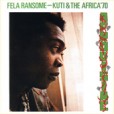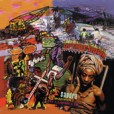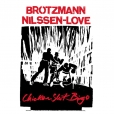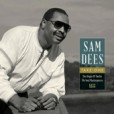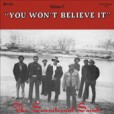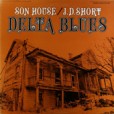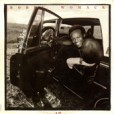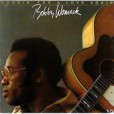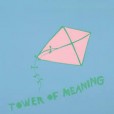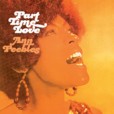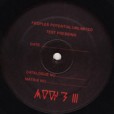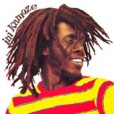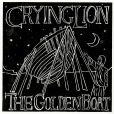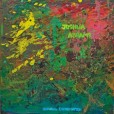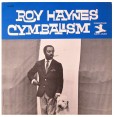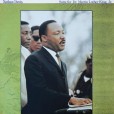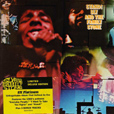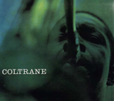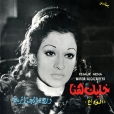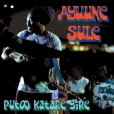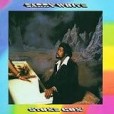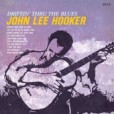Your basket is empty

‘Brotzmann barely plays saxophone at all, sticking mostly to tarogato and a host of clarinets; Nilssen-Love mostly plays gongs, bells and other metal percussion. With the changes in tools comes a change in approach. Nilssen-Love is sparer and more decorative, providing accentuating commentary that highlights the more solemn and yearning aspects of his partner’s playing, and Brotzmann explores melancholy to devastating effect. This is a career peak for the recently departed reedist’ (Bill Meyer, The Wire).
Excellent, tastily apportioned EP, kicking off with a synthy dancefloor chugger from Moon’s back pages, and debuting a fresh, desolate Purpleness, in Art Direction.
Re-formatting the 1984 Island 10”. Sly and Robbie runnings, with Trouble You A Trouble Me and World-A-Music.
Refreshing, rootedly odd, mostly unaccompanied four-part-harmony singing recorded in Govan Old Parish Church, Glasgow, by members of Trembling Bells and Muldoon’s Picnic. Elements of Sacred Harp, Gregorian chant, medieval madrigal and English folk, with poetic influences including Maya Deren, Saint John The Divine and Dennis Potter — a unique blend of the visionary and the earthly, the intimate and glorious.
Silk-screened sleeve.
‘Composed during one of London’s endless dark and locked down winters, Fever Dreams is a fantastical, speculative take on high density living. From dark, mouldy rooms, subterranean depths, symbiosis and multi-species entanglements, it cloaks itself in the claustrophobia, excitement and despair of living in a metropolis. It is a work which both celebrates and fears the weeds, spores, vermin and grime of London. The dark fantasies, frustrations, and utopian aspirations of its urban survivors. Frozen plastic bags, cramped living quarters, the kindness of strangers, the desperate unfairness of who gets what and when. Almost getting there but not quite. Being overcome by emotion for no reason. Unexpectedly moved, inexplicably destroyed. The never still, forever unfolding moments which comprise living on top of each other. Sinking and swimming; together/apart.’
‘A rare and wonderful thing, a whirling, warm-blooded extension of the cosmic traveler’s inner consciousness, filled with surprise and steadiness instead of apprehension and fear. Fans of raga, psychedelic rock, jazz and world music are in for a real treat’ (Dusted).
‘Engaging, deliberately hypnotic music, its style ambiguously pitched between retro psychedelia, contemporary drone and timeless North African’ (All About Jazz).
‘One of the rough gems of the post-everything musical era’ (New York Times).
Highly entertaining, varied session for New Jazz in 1963 — the same year as Cracklin’ — with Frank Strozier (playing saxophone and flute), Larry Ridley and Ronnie Matthews. The tricky, careering opener Modette is terrific.
A moving, lovely, heartfelt tribute, seamlessly combining jazz-funk, soul, gospel, Black Jazz, bebop, Latin, spoken word and co, with palpably higher concerns than genre and market. Released in 1976 on his own imprint by the jazz veteran — sixties cohort of Eric Dolphy, Ray Charles, Donald Byrd and the rest — alongside the all-time classic If.
Quite different to A Wonder Working Stone and Spoils, the ten songs here are ‘sparse, intimate and concise. The focus throughout is on Alasdair’s deft acoustic fingerstyle guitar and his voice. The songs are variously elliptical and gnomic, direct and personal, romantic and tender.’ With sparing, decisive contributions on clarinet and tin whistle — and from Crying Lion.
Totally unmissable just for the opener, a killer, 15-minute version of Arlen’s show-tune Out Of This World — drums and bass locking it down, Trane taking flight. From 1962, between Ole and Impressions.
Warda Ftouki is one of the great Arab divas of the twentieth century.
Aka Warda Al-Jazairia, Warda the Algerian was forced to leave Algeria in 1956, when FLN guns were discovered in her dad’s nightclub. (Warda was a lifelong, unflinching supporter of independence.)
Aged twenty, now singing in Beirut cabarets, she became the protege of Mohammed Abdel Wahab. Returning to Algeria after independence in 1961, she took a ten year break from singing, because this was forbidden by her new husband. She left him in 1972, moving to Egypt, where she married Baligh Hamdi.
Here she is in 1973, singing a composition by Hamdi, backed by a full Egyptian orchestra, including electric guitar and organ, in front of a euphoric, adoring crowd.
Wonderful music — swirling and grooving with dazzling virtuosity; imperiously funky and giddily soulful.
Driving, rawly soulful kologo music from northern Ghana, propelled by double-stringed lute.
African Head Charge front man Bonjo Iyabinghi Noah guests.
Putoo Katare Yire, Wickedness Has No Home.
Terrific.
